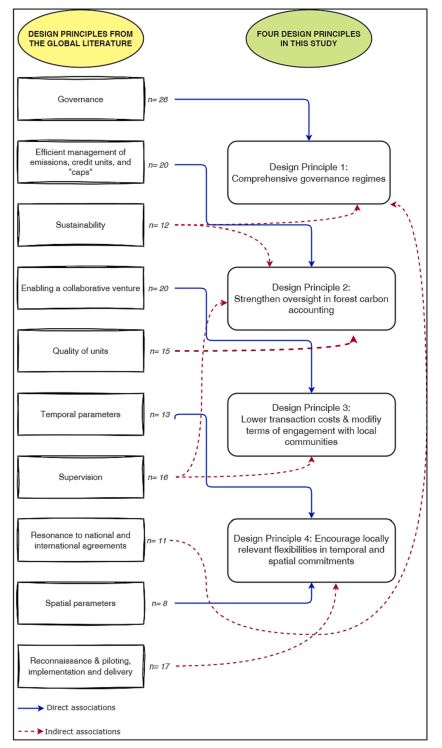January 01, 2024 | Ecological Indicators | Source |
Introduction: Forest carbon markets (FCMs) offer a way to combat climate change by valuing forests as carbon sinks. India aims to utilize its vast forested areas for carbon credits. Policy changes signal a shift toward domestic carbon trading schemes. However, implementing market-based mechanisms in India faces challenges in ensuring equity and effectiveness. Researchers from Ashoka Trust for Research in Ecology and the Environment explores design principles to make such mechanisms successful, considering global experiences and local contexts.
Key findings: The four design principles relevant to India thus identified are: 1) clear market standards, 2) a robust regulatory framework, 3) lower transaction costs, and 4) local flexibility. However, FCMs in India face challenges such as land rights disputes, limited implementation capacity, and flaws in carbon markets. Comprehensive governance, strengthened oversight, reduced transaction costs, and flexible commitments can address these challenges and ensure FCMs benefit all stakeholders. Yet, fundamental issues like unclear land rights and insufficient ecological knowledge present ongoing hurdles to effective implementation. Addressing these challenges will be critical for FCMs to deliver meaningful climate action and foster sustainable forest management in India.
Figure | Illustration to outline the occurrence frequencies of enlisted design principles from the global literature and their linkage patterns to the shortlisted design principles in the Indian context.





